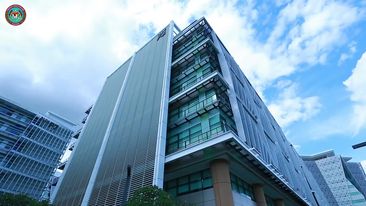
PETALING JAYA, Nov 24: In the wake of huge losses and severe weaknesses revealed on Nov 22 by the Auditor-General’s 2022 Report in the activities of the federal government ministries, departments and statutory bodies, the Center to Combat Corruption and Cronysim (C4 Center) is urging the government to prioritise consistent public reporting on projects to track their progress throughout their lifespan to prevent the losses from being revealed only after millions have been wasted.
Losses amounting to RM681.71 million were reported from 6 projects out of the 16 performance audits carried out across 14 ministries. Auditor-General Wan Suraya Wan Radzi said that the biggest loss came from the Padi Planting Programme (RM606 million), while the other major losses were in the Langkawi Development Board’s (LADA) real estate development programme (RM14.3 million), firearms supervisory and management under the home ministry (RM6.3 million), a marine rehabilitation programme (RM490,000), factory investment incentives (RM300,000), and safe city initiatives (RM120,000).
In a statement issued here today, C4 Center also called for further empowerment of the Auditor-General’s office and their capacity strengthened to conduct audits more regularly and unannounced on government bodies.
It should also table a Government Procurement Bill that would codify procurement procedures that would ensure transparency in the selection of suppliers and contractors, as well as their merit and proven track record in providing goods and services.
C4 Center also called on the Malaysian Anti-Corruption Commission (MACC) to ramp up efforts in investigating failed government projects, especially in the cases where irregular payments have been made in order to eliminate corruption from within the governance structures.
“The audit additionally showed that of the 16 projects, a staggering 11 failed to meet their objectives. Furthermore, the performance of 3 could not be ascertained, while only 2 succeeded in their objectives.”
The Malaysian Anti-Corruption Commission (MACC) must open investigations into these cases in collaboration with the Auditor-General’s Office in order to ascertain if corruption had contributed to these losses.
Calling on the government to take the findings seriously, C4 Center said the revelations further illustrated the urgent necessity for institutional reforms such as the legislation of a Government Procurement Act and establishment of an Ombudsman Office.
“The breadth of failures across projects in multiple ministries is stunning, especially because many of these projects were concerned with the provision of important goods and services that directly benefit the Malaysian public.
“Wan Suraya’s statements on the Padi Planting Programme reveal that the government had failed to manage the use of land and logistics of supplies needed for the operation of this programme. On the procurement of firearms and accessories by the Ministry of Home Affairs for the Royal Malaysian Police (PDRM), the Ministry had failed to adequately follow up on the delivery of supplies valued at RM7.5 million since 2014, leading to losses of approximately RM6.3 million.
“In both cases, the government had failed to implement a continuous and periodic progress reporting system. Additionally, the government did not take action despite the failure of the contracted party to supply the contractually required goods and services for an extended period of time, and subsequently did not face any repercussions at time of audit. The question that must be answered is how such massive operational failures went unnoticed and unaddressed for so long?”
The C4 Center once again reiterated its call to end existing flaws in Malaysia’s public procurement system.
“C4 Center has long highlighted the lack of transparency as well as lack of legal mechanisms that can be invoked in the case of non-performance of contractual obligations by suppliers. With the revelation of many such cases, it casts further doubt on whether the selection process for contractors was carried out in an open and transparent manner, and whether they indeed possessed the merit and qualifications to carry out these projects.
“It is incredibly frustrating that this is just another notch in a long-standing record of public funds being mismanaged and leading to massive losses. Within the last two years, there have been massive scandals that have emerged as a result of poor governance which saw millions of ringgit flushed away, including the catastrophic defence procurement in the form of the LCS ships fiasco, the delivery of non-functioning ventilators that were completely lacking in any legal documentation, and the alleged mismanagement of COVID-19 relief funds that possibly ended up in the bank accounts of political parties. The common thread between these scandals is that their harm could have been prevented or minimised through the introduction of institutional reforms that narrow the avenue for public officials to be able to exploit the lack of transparent government for their own gain.
“The unity government under the leadership of Prime Minister Datuk Seri Anwar Ibrahim has repeatedly touted their strong stance on good governance and a zero-tolerance attitude towards anti-corruption, but have been slow to introduce a slew of promised reforms.
“It is acknowledged that many of the scandals listed above took place before the current administration took office and that they have been left to clean up the messes. Nonetheless, almost exactly a year has passed since the government came into power, and the window of time for the public to extend goodwill towards inaction is surely slimming.
“The current government has made it known that they are working on some of these reforms, including the Procurement Act – nonetheless, we call upon them to expedite the process without any further delay.”
— WE